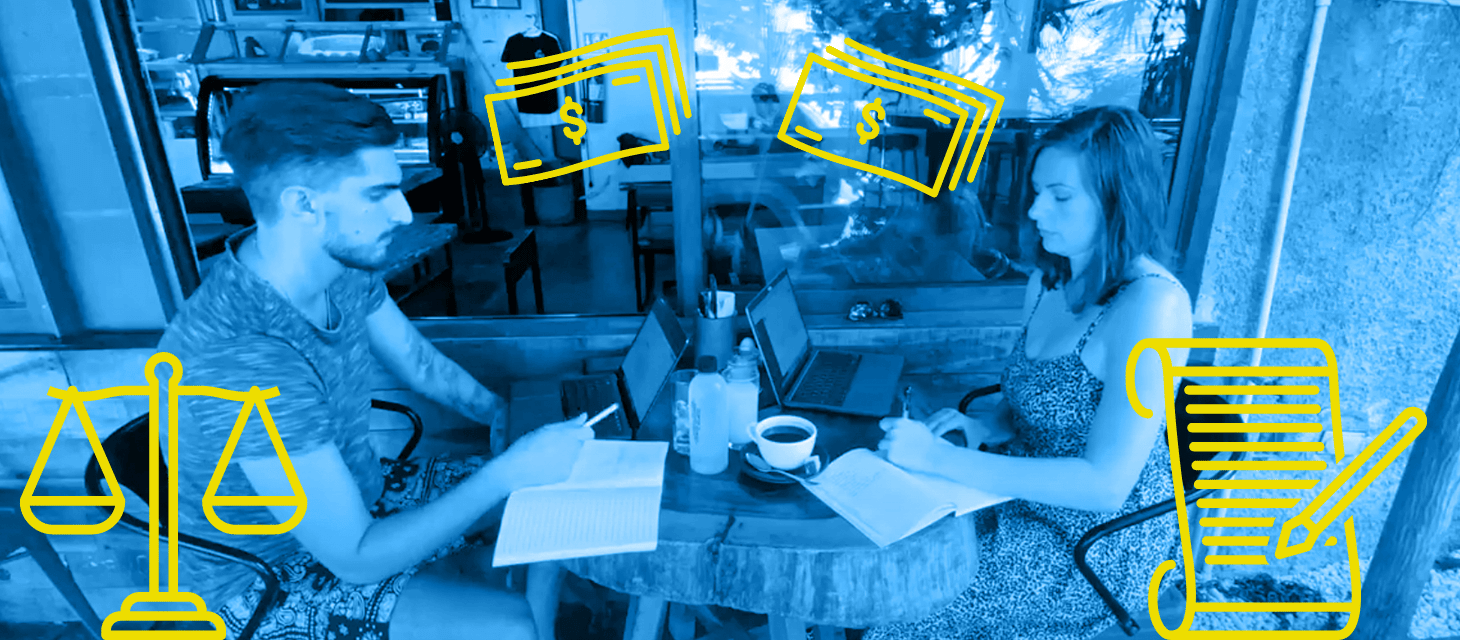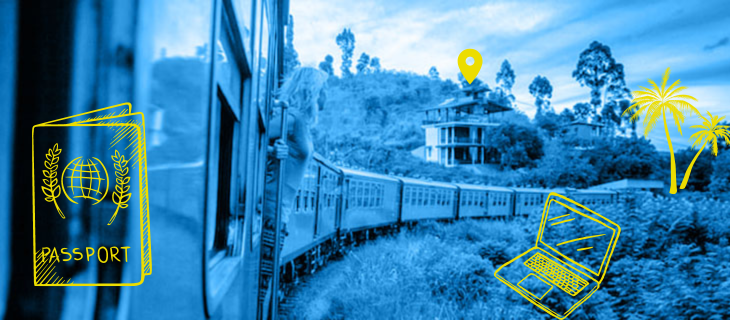Digital Estate Planning: How Digital Nomads Can Protect Their Digital Assets

We live so much of our lives online in the modern age. Go back a hundred or even two hundred years in time and physical assets were the norm. Some would argue that it was a simpler time. When it comes to your estate planning, this is definitely the case.
Now, we have a mix of both physical assets (such as your car, your house, your belongings) and digital assets. Both need to be accounted for.
For digital nomads building income-generating digital assets to live a lifestyle of full-time travel and remote, passive income, digital estate planning is more necessary than ever. As you live a life of adventure and each day to the fullest, you never know which day will be your last.
What happens to all of those digital assets like your online business or blog in this tragic case? By the end of this article, you’ll have the tools to protect your digital assets and how to start the digital estate planning process.
What Are Digital Assets and Why Should I Care?
Before we dive into the plan to get an estate planning attorney and secure your assets, let’s explore what is actually meant by digital assets.
There are many different assets that can come under this category, including:
- Online accounts including email and social media, for instance, a YouTube account
- Websites and blogs you own
- Ecommerce or marketplace accounts (i.e. Amazon, eBay, etc.)
- Online banking accounts, credit cards, PayPal, etc.
- Cryptocurrency, ICO Tokens, and blockchain investments
- Intellectual property and copyrighted materials, trademarks
- Domain names and websites you may own and run
- Photos saved online or on the cloud
- Loyalty points, discount coupons, store credit.
So what happens to all of that stuff if you pass away?
You need a plan to ensure it doesn’t get lost in the ether. Unlike physical assets, these do not necessarily “exist” in any physical manner, so if nobody else knows about them, or knows how to access the accounts, then how will they get passed on to others? The answer is that these accounts and assets could conceivably ‘disappear’ and never really be seen again. A web host or an affiliate marketing account is not going to make a point of tracking down your relatives to pay money owed.
Traditional vs Digital Estate Planning
There is a huge difference between these estates, but the principles involved in estate planning are similar. You will name an executor and create a will to allow all of your assets to be divided up and given to those you wish when you are gone.
Of course, there isn’t a car or an old grandfather clock to give away, so the logistics look quite different.
How to Prepare a Digital Estate Plan
So, now that we’ve established why it is so important, let’s look into how you can prepare a digital estate plan. What are the steps to take to make sure everything you’ve worked for online doesn’t go missing?
Make a List af All Your Digital Assets and How to Access Each One
It starts with a list. If you are going to pass on access to all of your digital accounts then you need to know how to access them. This may include some passwords, so security is absolutely crucial at this stage. On top of that, remember that passwords may change.
Password keychain software could be the answer to this. It’s a good idea to carefully manage your passwords. The main thing is to ensure that you have noted the account and the company it is with. Using a death certificate it is possible that a relative may be able to contact the company and obtain access without the password.
Decide What You Want to Do With Them
It could be as simple as naming one person to take over all of your accounts. For instance, if you are looking to just pass on access to your digital photographs and videos to a loved one, or to allow a wife or husband into your online banking.
Actually, for most people, it is much more complex than this. Some of your assets (like a profit-generating affiliate or YouTube account) might go into the possession of a loved one, while others go to family members.
Make it clear who you wish to inherit each asset.
Name a Digital Executor
A digital executor is not necessarily a ‘legally binding’ role. This could just be somebody to help the legal executor of your will work out how to divide and access the accounts in question. Ultimately, the executor is going to be responsible for ensuring that the assets go to those who are entitled.
Without a digital executor encouraging access to these accounts, it could be easy for an executor to miss out. They may not even realize that these digital assets exist. For a digital nomad, this could mean losing out on some of the income and digital assets you’ve worked so hard for.
Store The Documents in a Safe Place
It is vital that you store the documents securely. It is sensitive information, and while you are alive you certainly don’t want it leaking.
Secure options include using an online storage service. There are renowned companies out there who will happily store and look after your documents.
Alternatively, printed or digital copies could be stored with an attorney, or failing that, within a safe or locked filing cabinet.
It is always good to have a backup plan, too. For example, if you are going to store the details on a USB memory stick, creating a second for safekeeping elsewhere could be wise. Password protecting the data could provide a further layer of protection.
Legitimize and Turn It into a Legally Binding Document
The legal aspects may be different depending on where you live, even down to which state you are in.
Your digital estate plan may be turned into a document that is binding in the same way as a will. The executor, or digital executor if you are able to name one, will be legally responsible once you pass away.
There should then be an access plan, allowing those who have the right to take over your accounts to find the access methods. This should not be within your Will. In a lot of places, including all of the US, a Will becomes a public document when you die. Anyone could read it. Instead, put the information on a secure document held by an attorney or with a company that specializes in keeping this kind of information safe and secure.
You may also enjoy

A new digital nomad visa has popped up for remote workers… but it’s not like traditional remote worker visas we’ve talked about before. Launched in February 2026, the Bhutan digital…
by Brittany

Do you dream of living and working remotely from Sri Lanka for a year? See if you can with our free Sri Lanka digital nomad visa eligibility check! Simply answer…
by Brittany

Are you planning to apply for the Portugal digital nomad visa? Then you’ll want to read about the new eligibility changes and Portugal digital nomad visa updates for 2026. Each…
by Brittany
